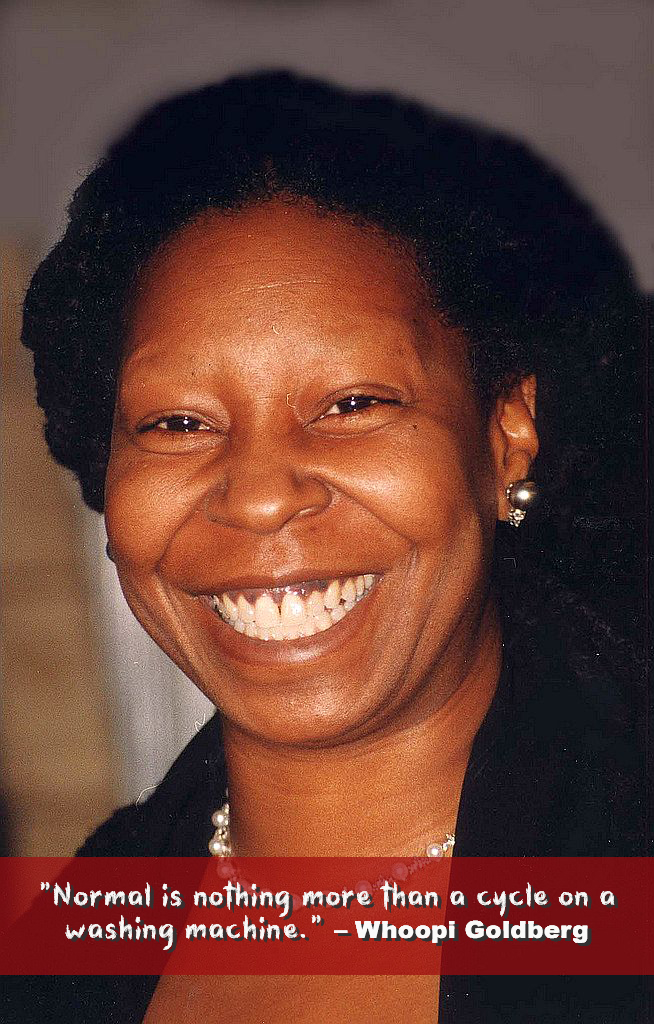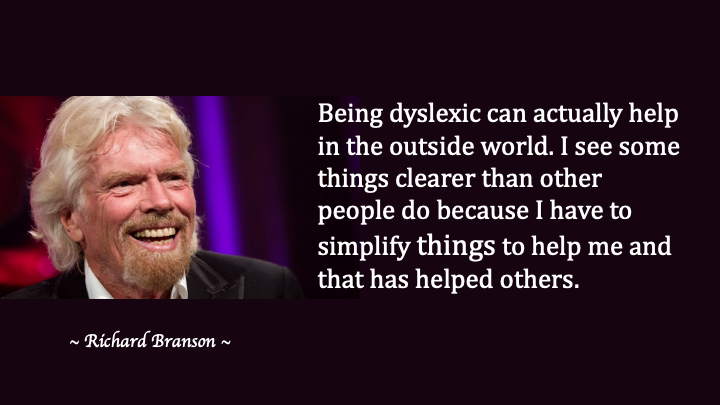Presently, one in four parents has a child who suffers from some magnitude of nearsightedness (myopia).


At the beginning of my parenting journey, I came across this quote, “There are only two lasting bequests we can hope to give our children. One of these…is roots, the other, wings.”

According to Quote Investigator, the earliest evidence of this saying comes from a book by a prominent 1953 newspaper editor, Hodding Carter, in which he said a “wise woman” said those words to him.
One day, I would like to meet Ms. Anonymous. Many profound statements have been made by her.
When I first learned that my daughter was dyslexic, I was crushed. The plans I had; the dreams I’d cherished disappeared the moment I read the dyslexia specialist’s evaluation report.
As in any other loss, I went through the grieving process.
Denial
First, I thought she had made a mistake. Perhaps my daughter had just misunderstood some of her questions and directions. My brilliant child could not have the D word.
Anger
“Why me?” I asked God. After all, I am the academic in my family. “Why would you do this to embarrass me?” My friends expected my daughter to be a genius. Now, instead I would be humiliated. I didn’t even know anyone with a dyslexic child.
Bargaining
If only I had spent more time teaching her the basics… If only I had homeschooled her… If only… If only… If only…
“Okay, God, I’ll do better. Can you make this go away?”
Depression
“I’m an introvert, so I’ll just keep to myself and tell no one,” I thought.
Acceptance
Finally, I arrived at a place of acceptance. This is the hand I was dealt, so God must have a good reason. After all, He said that all things work together for good to those who love Him. The time had come to buckle down, do some research, and tackle this monster. When all is said and done, I am more than a conqueror.
This was the point when I sat down, reflected, prayed, and made a plan. I am resilient – my mother taught me how. I am a winner – my father instilled that in me.
I picked up myself, dusted off my mental dross, and stepped out to vanquish dyslexia. I resolved to give my daughter roots and wings.
Roots so deep that no one could shake her belief in herself… her gifts and abilities.
Wings so wide that nothing would keep her from reaching her highest goal in life.
How to give your child roots and wings:
Most importantly, come to a place of acceptance quickly.
Make memories in elementary school:
Highlight her strengths and use them to build her weaknesses.
Counterbalance the negatives teachers and other authority figures pour into her.
Read about that in my first letter to her here.
Make memories during the middle school years:
Find and implement programs available to strengthen the weak skills. Not just the popular ones, but also try those that may only have anecdotal evidence. If they worked for someone else, they may work for you.
Travel. Let her see social studies in action in real life. Take her to various countries. Let her explore the real world.
Check out my letter recounting my daughter’s middle school experience.
Make memories while she is in high school:
Teach her self-advocacy. Help her discover how she learns and provide the support and encouragement for her to travel on her own. Let her build confidence in her ability to surmount the most challenging difficulties.
Discuss every topic she’s interested in. Be prepared for your knowledge and imagination to be stretched.
Give her space to grow into her personality. Look at her graduation letter here.
Be a safety net for her during her young adulthood:
When my daughter went away for college, I visited regularly, and we chatted on the phone frequently.
Her friends got acquainted with me and I became a mentor to some and a surrogate mom to others.
Throughout the years, at different intersections of life, my daughter thanked me for the way I raised her and the consistent support I gave.
She still has some challenges, but she has learned how to roll with them.
On the other hand, she has excelled in the areas of her gifting, and receives ongoing accolades.
Many years ago, I come across some books and tapes by Dr. Denis Waitley. This poem of his resonated with me, and I hope it does with you, too.
A poem to parents…from their teenage child If I had two wishes, I know what they would be I'd wish for Roots to cling to, and Wings to set me free; Roots of inner values, like rings within a tree, And Wings of independence to seek my destiny. Roots to hold forever to keep me safe and strong, To let me know you love me, when I've done something wrong; To show me by example, and help me learn to choose, To take those actions every day to win instead of lose. Just be there when I need you, to tell me it's all right, To face my fear of falling when I test my wings in flight; Don't make my life too easy, it's better if I try, And fail and get back up myself, so I can learn to fly. If I had two wishes, and two were all I had, And they could just be granted, by my Mom and Dad; I wouldn't ask for money or any store-bought things. The greatest gifts I'd ask for are simply Roots and Wings. By Denis Waitley
As you ponder the future, what is your major goal for your child?
What it takes some people 80 years to accomplish, Kobe Bryant achieved in forty-one. He exemplified the power of intention and focused attention.

“I didn’t feel good about myself if I wasn’t doing everything I could to be the best version of myself.” ~ Koby Bryant
He started playing basketball at three years. When he was six, his father retired from the NBA and moved their family to Italy to be able to continue playing at a lower level. While there, Koby began to play basketball on a serious level and his grandfather kept him supplied with videos of NBA games for him to study.
At the age of 13, his parents returned to the United States for good. Koby recalls his days of being an insecure little boy, with no friends. On top of that, he said,
“I couldn’t spell, so the teacher told my mother that I was probably dyslexic, it was like somebody took me and dropped me in a bucket … in a tub of ice-cold water, because it shocked me.”
His mother made sure he got the help he needed.
It was then that he decided to channel his anger from the challenges and frustrations of dyslexia into sports and went on to become one of the NBA’s all-time exceptional players.
He made a deal with himself to stay focused on his goal and not be distracted by anything. He resolved to work hard every day, so that he could retire with no regrets, when that time came.
Kobe had an excellent work ethic and pushed himself to live the best way he knew how. Because he was super-focused on his craft, the world became his library. He looked at everything with this question in his mind, “How can this help me to become a better basketballer?”
He believed in playing with structure… with discipline. He believed in self-competition… always asking himself, “Is this the best I can do?”
Another concept he held was that you can learn more from your failures than your successes. He said that, “True strength comes from your vulnerability.”
He would review previous games with one of his coaches, then while playing, he was able to slow the game down in his mind and position players for optimal results. (a dyslexic strength) When a weakness emerges, the answer is there if you look at it.
With all his successes, he took time to be kind to those who would never be able to reciprocate. Did you know that he made over 200 Make A Wish kids’ dreams come true?
Here are 10 of his rules for success, gleaned from his various speeches:
He had an insatiable desire to learn more.
Listen to his final motivational speech here.
Which rule would you choose to motivate a struggling child in your life?
Most dyslexic children do not want to get out of bed on a school day. The younger ones may still be tired after a long night completing home work. In addition to that, the older ones have social issues – being called dumb or lazy, being stared at or whispered about behind their backs.

Follow Henry through one day at school.
Has your child ever pretended to be sick to avoid going to school?
What did you do?
A child’s high school experience can be pivotal. For a dyslexic, it’s an even greater achievement, considering that 35% of dyslexics drop out of high school.

My dearest K,
I can’t believe this time has come. You never thought you would achieve this much. But our God has been faithful! You are at the end of High School, and it’s your graduation day. Well done, my child!
Some Things Remain
Testing seemed to have been the first order of high school. Those pre- and post- IOWA tests seemed to be written in a different language and the New York State Regents examinations loomed ahead and you didn’t know what to expect. Now, the bulk of schoolwork had to be done at home, since school hours were spent in discussions and experiments.
You still struggled for hours, every night, to complete your homework assignments; and your late nights made it difficult to wake up early for school, the next day. But you pushed on. It was a blessing you had the Learning Ally audio textbooks to accompany your print books.
You still weren’t very motivated to go to school, but you went, without complaining.
Do you remember how, in addition to your school, you had to work through those brain exercises and the Learning Ears program? It seemed like intervention programs would never end, but I kept pushing and encouraging you.
A New Experience
High school was different from elementary and middle school. For you, it was a good change. Here students were expected to be responsible and you were no longer dependent on teachers.
The many intervention programs began to pay off. You’re reading better and not afraid to be called to read in class. You learned tips and tricks of blending with the crowd and appearing “normal,”
You were involved in more student interaction and collaborations and were accepted into the groups without question.
Teachers
Your teachers here were empowering and less punitive.
Your 9th grade homeroom teacher set the tone and spiritual foundation for your high school experience. She was kind, supportive, friendly, yet demonstrated excellent classroom control.
Your 12th grade homeroom teacher and Digital Media teacher (whom we found out later is also dyslexic) were great cheerleaders.
You history teacher taught you much about the philosophy of living, and kept you curious about life and the world.
I don’t know what you told him, since you determined not to let anyone in your school know you were dyslexic, but it was admirable of your Bible teacher to allow you to take his scripture memorization tests verbally, rather than written.
Your science teacher, Ms. A., took the crown. She was focused on your success. She was the reason you scored so high on the Biology Regents. She taught you how to explain yourself verbally and on a written test. She moved around the class and met you and your classmates on your level. The atmosphere she created in her classroom made it easy to ask any question, and not feel ridiculed. Along with that, she seemed to put extra effort into getting you to the point of clarity, then remembered to celebrate your successes and cheer you on to the next level. All in all, she made learning fun, and your high school experience enjoyable.
Your teachers didn’t seem bent on embarrassing you, but allowed you to take responsibility for your decisions and actions.
Friends
It was easier to relate to your classmates and you acquired female friends. Even when you misspelled or verbally mixed up words and phrases, your friends just laughed, corrected you and moved on. When you didn’t understand some concepts, they chuckled and explained it. It just wasn’t a big deal!
What relief I felt that you maintained a pleasant demeanor and displayed no more evidence of daily anxiety. The communal atmosphere certainly added to what I was doing to build your self-esteem. You took your inclusion in activities and the respect shown to you as evidence of your friends’ trust.
To top it off, your peers considered you to be smart.
Successes
Your work ethic began to pay off – you are reading better.
More importantly, you now understand the implications of your different thinking style and have discovered how to teach yourself to learn, and developed a personal manifesto:
Finally getting a grasp of how you learned helped you prepare for and pass you exams.
Your high school experiences helped you see that, although you may learn and see the world differently from others, the foundation for success is the same.
You made a conscious decision to pass and be a success in life.
Do you remember the knot-board you created for your club assignment? It was so creatively organized – so exceptional – the club director kept it as a sample to show future members.
Your decision to be intentional about your success permeated every area of your life.
You are admired by young people and adults alike.
Today, you graduate Valedictorian of your class. Yes! VALEDICTORIAN!!!
You deserve every moment of your celebration!
Look out College. Here she comes!
Love,
Mom
How has your child overcome personal challenges to achieve success in some area of life?
Only a few people have won an Emmy, a Grammy, an Oscar, and a Tony Award (EGOT). Caryn Elaine Johnson is one of them.

She was born on November 13, 1955 in Chelsea, New York and grew up in a housing project with her brother and mother, who was a nurse and later became a Head Start teacher.
In school, she was called “slow,” “dumb,” “lazy,” or “retarded.” She wasn’t diagnosed with dyslexia until she was an adult, so when school kept getting harder and harder, she eventually dropped out at 17. With her self-esteem low, she traveled a turbulent road in life, which included poverty, drug addiction, single motherhood, welfare, and a series of wide ranging jobs.
In his interview for the Child Mind Institute, the founder, Dr. Harold Koplewicz, called her a woman of grit and resilience.
Today, we know her as Whoopi Goldberg, actress, comedian, radio host, television personality, author and UNICEF International Goodwill Ambassador. Listen to her recall some of her challenges and her mom’s support in her interview with Quinn Bradlee:
She counsels parents to be supportive of their dyslexic children – “Stop trying to find a reason why it happened… It’s not your fault… Pay attention to how your child is doing stuff.”
Then, listen to her speak at the Goodwin College 2018 Commencement where she counsels the graduates, after receiving an honorary Doctorate of Humane Letters.
How can you build your child’s self-esteem at home to combat the negative labels in school?
Dyslexia and similar learning differences often show up in a child who appears bright, highly intelligent, and quite articulate for his age. Unexpectedly, this same child has difficulty reading, writing, and spelling at grade level.

Sadly, many of these children will go through life labelled as lazy, careless, dumb, displaying immature or inappropriate behavior, or “not living up to his or her potential.”
Why do they get these labels?
They usually score average or high on IQ tests and aren’t lagging behind their peers badly enough to qualify for specialized intervention. If you ask them questions about what they heard from you, they’ll, most likely, answer adequately, yet their written tests are atrocious.
Added to that, they often zone out, daydream, and lose track of time. It appears that they have difficulty sustaining attention to anything they’re not personally interested in.
There are also those children who are confused with right and left. Not just in terms of the direction, but also with their handedness. They may write with the right hand, but do other activities with the left. Some mispronounce words, by switching letters or transposing words, for example, saying “mower lawn” for “lawn mower.”
One sign of dyslexia that’s commonly overlooked is word-finding difficulties. This leads to trouble expressing oneself and can have a social impact on the dyslexic. They often suffer from low self-esteem, thinking that there’s something wrong with them, because they’re not like the “normal” children.
What happens to dyslexics?
As students, they are ridiculed by classmatea and teachers alike, causing them to be isolated and, by middle and high school, seek the company of peers engaged in risky behaviors like drugs and alcohol.
Everyday experiences of failure, ridicule and not measuring up to expectations, sow seeds of shame, which grow in the minds, emotions, and souls of young children who are just beginning to discover their potential and form their identities.
Dr. Gershen Kaufman discovered in his study on shame culture that people who cannot read feel the same level of shame as people who have engaged in incest.
Where do these feelings lead?
Shame and rage seem to love to keep each other’s company. For the dyslexic, school becomes a place where there’s a struggle to survive instead of a place where joy is experienced in learning.
In Dr. Kaufman’s research, he found that:
Dean Bragonier, the founder of NoticeAbility – a nonprofit dedicated to changing the world for students with dyslexia – summarizes the statistics this way, “Some of the most creative and innovative minds are wasting away behind bars.”
It is obvious from these statistics that early identification of dyslexia is crucial. Not only is initial identification essential, timely remediation of learning disabilities associated with it is also necessary.
What is one way you can contribute to eradicating this dyslexia dilemma?
Letters can be very personal and are often treasured by the receiver, so I’ve penned another letter to my daughter.

My dearest K,
You have hated every minute in school and never thought you would have made it this far. But, here you are at the end of the eighth grade. Congratulations, my child!
Struggles
My heart ached every time I saw how difficult it was for you to read out loud. We would practice your scripts and Bible verses for church, until you had them memorized. But those times when you were called on suddenly, because the church leaders perceived you to be such a brilliant young lady, I was embarrassed for you, as you labored to get through the readings.
Then there was the dreaded school. Every day. I made you go even when you complained of feeling sick, because I thought you were trying to escape. Unlike your third grade teacher, you middle school teachers did not understand the challenges of dyslexia, neither did they seem to want to.
I cringe every time I think of the public humiliation you endured, dying a thousand deaths every day. My heart aches when you recall how a teacher would unmercifully keep embarrassing you for reading aloud haltingly. Or making derogatory statements when you didn’t quite process and understand her question, preferring to think you hadn’t prepared at home, when you had spent many hours doing so, and fell into bed exhausted, every night.
No wonder you preferred hanging out with the boys. Unlike the girls who sat around talking about the books they were reading, they ran and jumped and played games you could identify with and feel accomplished.
Spelling continued to haunt you. Now, even more than before considering the difficulty of the assigned textbook.
Do you recall your difficulty reading social cues and showing appropriate behavior for different places? There was that time when you were playing with classmates instead of lining up and you were punished by having the class treasurer job – the one thing you exceled at and cherished, taken away. That was very poor judgment and downright mean of the teacher.
I can only imagine the way your experiences eroded your trust in adults who glossed over the tasks you accomplished, but humiliated you for the ones you did not do because you did not know how.
Successes
On the other hand, do you remember how you learned to find your orientation point so you stopped your mind’s eye from roaming and getting you disoriented? And the clock technique that helped you go to sleep at night and wake up in the mornings?
Then, I got you that music listening therapy program to tune up your ears and your brain and you learned that your brain is musical. As your listening improved, so did your singing voice.
When we started to travel to other countries, your eyes were opened and your mind exploded when you realized that there was more to life than the struggle at school, and more ways of expressing yourself and viewing intelligence. You were permanently changed.
Traveling gave you an opportunity to see what you learned in books come to life. You observed firsthand, different cultures, food, governments and ways of life. Theory was now real.
Added to that, our extended family dynamics allowed you to ask any question and get an answer, without making you feel stupid.
You have worked so hard and so diligently.
I continue to be very proud of you.
In spite of the challenges you encountered because of dyslexia, you courageously plowed ahead and conquered them.
You are getting better, every day.
Today, you graduate with high honors.
You deserve every moment of your celebration!
Now, on to High School. I’m in your corner and you will succeed!
Love,
Mom
What positive experiences can you reinforce in your child to counter the struggles they experience, every day?
“I was dyslexic, I had no understanding of schoolwork whatsoever. I certainly would have failed IQ tests.” ~ Richard Branson

Sir Richard Charles Nicholas Branson was born on July 18, 1950, at Blackheath, London. His father was a barrister and his mother a flight attendant. His academic performance was poor. He was always interested in becoming an entrepreneur, so he dropped out of school at age 15, to start his first business…a magazine named Student. Listen to this interview in which he credits dyslexia with helping him.
He founded the Virgin Group in the 1970s. In 1984, he started Virgin Atlantic Airlines. In 2004, he founded spaceflight corporation Virgin Galactic, based at Mojave Air and Space Port, for the SpaceShipTwo suborbital spaceplane designed for space tourism. Today, his group controls more than 400 companies in various fields.
Having faced a lifetime of failures, Branson noted, “I suppose the secret to bouncing back is not only to be unafraid of failures but to use them as motivational and learning tools.”
Branson learned he was dyslexic as an adult. In one of his many interviews, he counseled, “Never give up… Fight, fight, fight to survive.”
Talking about dreams, he says, “If your dreams don’t scare you, they are too small.”
Do you have a dream that scares you?
Have you asked your children (dyslexic and non-dyslexic) about their dream lately?
In my letter to my second-grade dyslexic daughter, I highlighted ways she excelled, in an effort to offset her teacher’s list of her weaknesses. She is not the only one with gifts that, if built on, can propel the dyslexic to success in life.

Did you know that 35% of entrepreneurs, 25% of CEOs, and over 50% of NASA employees are dyslexic? This is not by accident.
Here is a shortlist of 5 advantages someone identified with dyslexia has over the person who is not. These strengths combine to make them extraordinary in their chosen field of work.
Children with dyslexia tend to be consumed with what they cannot do and totally miss the areas in which they outshine their reading peers. If you have or know a parent with a dyslexic child, make it your duty to build their self-esteem by consistently emphasizing the areas where they excel. Show them that you believe in them.
In your association with dyslexic children and adults, what exceptional skills have you noticed?